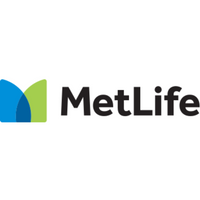How to break the death taboo in the workplace – and why it matters
Death is one of the few things in life of which we can be certain. But, despite its inevitability, death is a topic people struggle to talk about.
Research conducted on behalf of MetLife found that fewer than half (44%) of people have discussed their death or funeral wishes with family or friends.
But employers can help to support this conversation and break this final taboo.
Discussing funeral arrangements can provide considerable comfort to loved ones. Losing a loved one is a traumatic time which can be made worse if you don’t know what type of arrangements the deceased would have liked.
Nearly one-third (31%) of those who have suffered a recent bereavement say that funeral planning added stress to what was already a difficult and upsetting time.
Too many decisions
This is exacerbated by the amount of choice available when it comes to funerals. As well as traditional church services, it’s possible to have a non-religious celebration of life or even eschew a formal service altogether with a direct cremation.
Having these details in place can remove unnecessary stress from family and friends of` having to arrange a funeral, giving them the comfort that they have provided the send-off you wanted.
It also enables them to focus on their grief, helping them to heal and come to terms with their loss.
Make it easier for those left behind
The benefit of knowing someone’s final wishes comes through clearly in the research.
Among those who had recently experienced a bereavement, 25% struggled to make decisions while grieving and 13% say the stress of having to arrange the funeral caused arguments with family and friends.
But it’s not just that we’re not sharing our wishes with our nearest and dearest, we’re not even acknowledging that, one day, we will need a funeral. Just 5% of us have already planned our funeral, with one-third of us not even giving it a thought.
Where there’s a will...
Heads are also firmly in the sand when it comes to the legal aspects. Only 15% of respondents have written a will and just 14% have told their families where they can find important documents.
Dying without a will means an estate won’t necessarily be passed on in line with someone’s wishes, potentially putting families and friends at risk of financial hardship, heartache and even legal action.
Investing time to think about and communicate our wishes and share the practical aspects of our death administration can lessen the burden on loved ones. It’s not an easy topic, with many of us shy away from even acknowledging that it will happen one day, but starting the conversation can provide reassurance alll round.
How employers can help
Employers have a role to play in starting a conversation about death and funeral planning.
The data shows that talk about death, and the practical and emotional implications surrounding it, is still limited, narrow and a forbidden subject.
However, to support people’s needs and reduce the burden on loved ones, we need to address this challenge by opening up the conversation around death and providing support to help.
Starting the conversation about death and funeral planning is essential. Not many of us may want to discuss it, but for those left behind, it could be one of the most important conversations they ever have.
Download our report, The Last Word, to understand the importance of opening up the conversation around death, what it means in the workplace and how we can begin to influence change.
Supplied by REBA Associate Member, MetLife
At MetLife our aim is to help businesses prepare for the future, perform at their best and protect their people.








